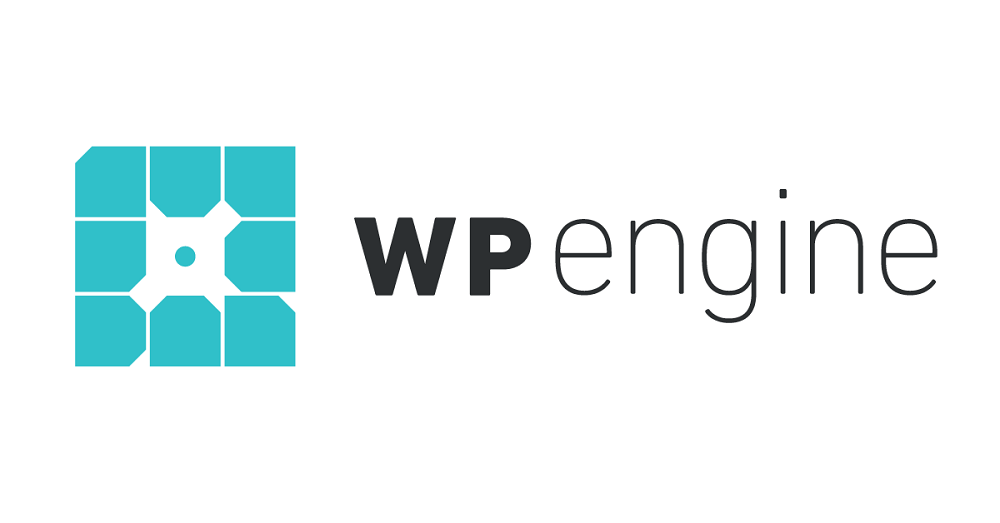Is WP Engine Safe to Keep Using Now WordPress Has Blocked Them?
Posted on 27 September 2024
Is WP Engine safe to keep using? First of all we should probably dig into what’s going on with WP Engine vs WordPress.
Over the past few months, a heated feud has erupted between Automattic, the company behind WordPress, and WP Engine, a major managed WordPress hosting provider. This conflict reached a tipping point when WordPress.org blocked WP Engine customers from automatically updating or installing plugins and themes via the WP Admin interface. Instead, users are now forced to perform these tasks manually, which has left many wondering if WP Engine remains a safe and practical option for hosting their WordPress sites.
Understanding the Feud Between WP Engine and WordPress
The feud between WP Engine and Automattic, the company behind WordPress, has deep roots in issues of competition, intellectual property, and control. It represents a significant moment for the WordPress community, as it brings to light ongoing tensions between Automattic’s leadership and third-party service providers.
The Origins of the Conflict
The feud publicly escalated in 2024 when Matt Mullenweg, CEO of Automattic, made sharp criticisms of WP Engine at WordCamp. He accused WP Engine of unfairly benefiting from WordPress without contributing enough to the open-source ecosystem. WP Engine responded with a cease-and-desist letter, arguing that Mullenweg’s statements were defamatory.
At the heart of the dispute is WP Engine’s position as a major player in managed WordPress hosting. Automattic and Mullenweg feel that WP Engine profits disproportionately from WordPress without giving back to the open-source platform, whereas WP Engine sees Automattic’s criticism as an attempt to stifle competition in the hosting space. This tension is exacerbated by the fact that Automattic runs its own WordPress hosting service through WordPress.com, making it a direct competitor of WP Engine.
WordPress’s Block on WP Engine Users
One of the most immediate consequences of this feud is the block that WordPress.org imposed on WP Engine users. As of September 2024, customers using WP Engine are unable to automatically update or install plugins and themes via the WordPress Admin dashboard. This move affects thousands of websites hosted on WP Engine and has caused frustration among developers and site owners who now have to perform these tasks manually,
For many users, this block raises concerns about the security and maintenance of their websites, as automatic updates are a key feature in preventing vulnerabilities. The manual process is not only inconvenient but can lead to delays in critical updates. This has left some wondering whether WP Engine is still a safe and practical option for hosting their WordPress sites.
Legal Action and Accusations
In response to Mullenweg’s public statements, WP Engine initiated legal action, likely seeking to protect its brand and seek damages for reputational harm. This legal battle is indicative of broader concerns within the WordPress ecosystem about how Automattic wields its influence. WP Engine’s legal response suggests that they view the criticism not just as a matter of public relations but as an existential threat to their business.
At the core of WP Engine’s defense is the argument that they have done nothing to infringe upon WordPress’s trademark, and that they have made significant contributions to the ecosystem, despite Automattic’s claims. WP Engine also positions itself as a victim of Automattic’s increasing control over WordPress.org, particularly in relation to plugin and theme updates.
The Community’s Response
The WordPress community is divided over the feud. Some developers and users agree with Mullenweg, arguing that WP Engine has taken advantage of the open-source nature of WordPress without giving back adequately. They see Automattic’s defense of the WordPress brand as necessary to protect the platform’s long-term sustainability.
However, others see Automattic’s actions as heavy-handed and self-serving, especially given its own commercial interests in the hosting space. Critics argue that Automattic benefits from the open-source platform in similar ways, through its paid services like WordPress.com and WooCommerce. These critics worry that Automattic is using its influence to stifle competition and assert greater control over the WordPress ecosystem.
What Happens Next?
The legal and technical aspects of the feud are still playing out, and the long-term impact on WP Engine’s customers remains uncertain. For now, users of WP Engine will need to adapt to the changes imposed by WordPress.org or consider migrating to another hosting provider.
What Does This Mean for WP Engine Users?
The recent dispute between Automattic, the parent company of WordPress, and WP Engine has left many of its users questioning whether WP Engine is still a safe hosting option. With WordPress.org blocking WP Engine users from automatically updating or installing plugins and themes via the WP Admin interface, the situation has become a significant pain point, especially for those relying on these automated features to ensure smooth site operations.
Why WP Engine May Not Be Safe to Continue Using
- Increased Vulnerability Due to Manual Updates: One of the most concerning issues with the WordPress.org block is the need for manual updates. Plugins and themes are critical components of a WordPress site, often containing vital security patches and functionality improvements. Without automated updates, WP Engine users face the risk of leaving their sites exposed to vulnerabilities if updates are delayed or overlooked. For businesses managing multiple websites, this could lead to potential downtime, security breaches, or loss of functionality.
- Operational Inefficiency: Automating updates has long been a time-saving feature, especially for those who manage a large number of sites. Now, WP Engine users must dedicate time and resources to manually track and implement updates across their websites. This could place a strain on smaller teams or agencies that lack the manpower to handle these tasks efficiently. What used to be a background process is now a potential productivity bottleneck, impacting business operations.
- Uncertain Future of the Block: The duration of this restriction is currently unknown, leaving WP Engine users in a state of uncertainty. WordPress.org has not made any formal announcements regarding when, or if, the block will be lifted. For users who rely on their hosting provider to seamlessly integrate with WordPress, this uncertainty may prompt them to explore alternatives with fewer restrictions and more stability in the long term.
- The Potential for Escalation: Given the intensity of the feud, there’s a possibility that the situation could worsen. Further restrictions or more aggressive actions could be taken by either party, potentially affecting other essential services tied to WordPress. If that happens, WP Engine users could find themselves with even fewer options and greater challenges ahead. This risk should be factored in when deciding whether to continue using WP Engine.
How WP Engine Can Still Be Safe to Use
Despite the challenges presented by the block, WP Engine remains a robust platform for certain users:
- Strong Hosting Infrastructure: WP Engine is widely regarded for its reliable hosting infrastructure, offering excellent site performance, uptime guarantees, and comprehensive security features. For businesses that prioritize high-quality hosting, WP Engine still delivers on core hosting aspects such as daily backups, 24/7 customer support, and advanced security measures. If your team is capable of managing manual updates, these strong features could make WP Engine a viable option.
- Managing Manual Updates: While the need for manual updates may seem like a hassle, some users are already accustomed to this workflow, particularly those with in-house technical teams. Many developers use this approach to maintain full control over site changes, ensuring they can review each update before applying it. If your team has the capacity and expertise, managing manual updates on WP Engine doesn’t necessarily compromise your site’s security or stability.
- Short-Term Patience: For users who are otherwise satisfied with WP Engine’s hosting services, it may be worth waiting to see how the situation unfolds. WP Engine is highly incentivized to resolve this issue, as customer satisfaction and trust are on the line. If the block is lifted in the near future, you could resume automated updates without having to migrate your site. This short-term inconvenience may be outweighed by WP Engine’s strong hosting infrastructure.
- Customer Support and Resources: WP Engine’s reputation for customer support means that users can still rely on the company for troubleshooting and guidance during this period of disruption. Whether it’s managing updates or optimizing site performance, WP Engine provides a level of support that can help mitigate the impact of the current challenges. This includes extensive documentation, live chat support, and resources to ensure users can effectively maintain their sites during this period.
Is WP Engine Safe to keep using? If you’re still unsure, consider Plexaweb
At Plexaweb, we understand how critical it is to keep your WordPress site secure and running smoothly. That’s why we offer fully managed WordPress hosting, complete with free migration services. Whether you’re managing a single blog or running multiple websites for your clients, we ensure that your site remains up-to-date without the hassle of manual updates.
Why Choose Plexaweb?
- Blazing-Fast Speeds: Our state-of-the-art servers, located in a UK-based Tier 3 data centre, provide 1Gbps connectivity for ultra-fast loading times. This means both your users and search engines will love the speed and performance of your site.
- Enterprise-Grade SSD Drives: With enterprise SSD storage, your website will experience faster data retrieval, improving overall site performance. Plus, the redundant power, cooling, and network connectivity of our data centre ensures your site stays online with minimal downtime.
- Daily Backups: We take daily backups of your site to ensure that you never lose your data, even if the worst happens. This service is included at no extra cost, so you can always restore your site to a previous state quickly and easily.
- Automatic Updates: At Plexaweb, we handle all WordPress updates for you—plugins, themes, and core WordPress software—so you never have to worry about missing a critical security patch or functionality update.
- Seamless Migration: Moving your site from WP Engine (or any other provider) is simple with our free migration services. Our dedicated team will ensure a smooth transition, preserving your themes, plugins, settings, and data with minimal downtime.
- UK-Based Support: With 24/7 support and a team based in the UK, you can reach out to us at any time for help with your hosting needs. Our experts are on hand to troubleshoot any issues and ensure your site is running optimally.
If you’re ready to move away from WP Engine, Plexaweb provides a seamless and reliable solution. Our managed WordPress hosting takes the hassle out of website management, allowing you to focus on growing your business without worrying about the technical details.
Get in touch with us today to find out more about our hosting plans or to start your free migration:
Call: 02380 004 154
Email: [email protected]
Some of the content in this post has been inspired by content from the following posts/articles:
https://wptavern.com/automattic-responds-to-wp-engines-cease-and-desist-with-legal-action
https://wpjohnny.com/wordpress-vs-wp-engine-community-drama-2024/

